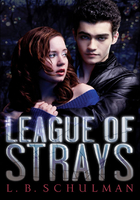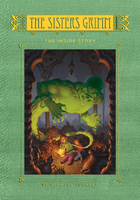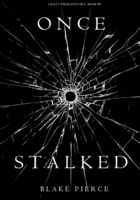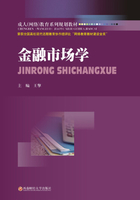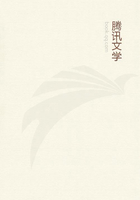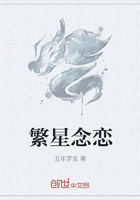MR. ATTORNEY-GENERAL had to inform the jury, that the prisoner before them, though young in years, was old in the treasonable practices which claimed the forfeit of his life. That this correspondence with the public enemy was not a correspondence of to-day, or of yesterday, or even of last year, or of the year before. That, it was certain the prisoner had, for longer than that, been in the habit of passing and repassing between France and England, on secret business of which he could give no honest account. That, if it were in the nature of traitorous ways to thrive (which happily it never was), the real wickedness and guilt of his business might have remained undiscovered. That Providence, however, had put it into the heart of a person who was beyond fear and beyond reproach, to ferret out the nature of the prisoner's schemes, and, struck with horror, to disclose them to his Majesty's Chief Secretary of State and most honourable Privy Council. That, this patriot would be produced before them. That, his position and attitude were, on the whole, sublime. That, he had been the prisoner's friend, but, at once in an auspicious and an evil hour detecting his infamy, had resolved to immolate the traitor he could no longer cherish in his bosom, on the sacred altar of his country. That, if statues were decreed in Britain, as in ancient Greece and Rome, to public benefactors, this shining citizen would assuredly have had one. That, as they were not so decreed, he probably would not have one. That, Virtue, as had been observed by the poets (in many passages which he well knew the jury would have, word for word, at the tips of their tongues; whereat the jury's countenances displayed a guilty consciousness that they knew nothing about the passages), was in a manner contagious; more especially the bright virtue known as patriotism, or love of country. That, the lofty example of this immaculate and unimpeachable witness for the Crown, to refer to whom however unworthily was an honour, had communicated itself to the prisoner's servant, and had engendered in him a holy determination to examine his master's table-drawers and pockets, and secrete his papers. That, he (Mr. Attorney-General) was prepared to hear some disparagement attempted of this admirable servant; but that, in a general way, he preferred him to his (Mr. Attorney-General's) brothers and sisters, and honoured him more than his (Mr. Attorney-General's) father and mother. That, he called with confidence on the jury to come and do likewise. That, the evidence of these two witnesses, coupled with the documents of their discovering that would be produced, would show the prisoner to have been furnished with lists of his Majesty's forces, and of their disposition and preparation, both by sea and land, and would leave no doubt that he had habitually conveyed such information to a hostile power. That, these lists could not be proved to be in the prisoner's handwriting; but that it was all the same; that, indeed, it was rather the better for the prosecution, as showing the prisoner to be artful in his precautions. That, the proof would go back five years, and would show the prisoner already engaged in these pernicious missions, within a few weeks before the date of the very first action fought between the British troops and the Americans. That, for these reasons, the jury, being a loyal jury (as he knew they were), and being a responsible jury (as they knew they were), must positively find the prisoner Guilty, and make an end of him, whether they liked it or not. That, they never could lay their heads upon their pillows; that, they never could tolerate the idea of their wives laying their heads upon their pillows; that, they never could endure the notion of their children laying their heads upon their pillows; in short, that there never more could be, for them or theirs, any laying of heads upon pillows at all, unless the prisoner's head was taken off. That head Mr. Attorney-General concluded by demanding of them, in the name of everything he could think of with a round turn in it, and on the faith of his solemn asseveration that he already considered the prisoner as good as dead and gone.
When the Attorney-General ceased, a buzz arose in the court as if a cloud of great blue-flies were swarming about the prisoner, in anticipation of what he was soon to become. When toned down again, the unimpeachable patriot appeared in the witness-box.
Mr. Solicitor-General then, following his leader's lead, examined the patriot: John Barsad, gentleman, by name. The story of his pure soul was exactly what Mr. Attorney-General had described it to be-perhaps, if it had a fault, a little too exactly. Having released his noble bosom of its burden, he would have modestly withdrawn himself, but that the wigged gentleman with the papers before him, sitting not far from Mr. Lorry, begged to ask him a few questions. The wigged gentleman sitting opposite, still looking at the ceiling of the court.
Had he ever been a spy himself? No, he scorned the base insinuation. What did he live upon? His property. Where was his property? He didn't precisely remember where it was. What was it? No business of anybody's. Had he inherited it? Yes, he had. From whom? Distant relation. Very distant? Rather. Ever been in prison? Certainly not. Never in a debtors' prison? Didn't see what that had to do with it. Never in a debtors' prison?--Come, once again. Never? Yes. How many times? Two or three times. Not five or six? Perhaps. Of what profession? Gentleman. Ever been kicked? Might have been. Frequently? No. Ever kicked down-stairs? Decidedly not; once received a kick on the top of a staircase, and fell down-stairs of his own accord. Kicked on that occasion for cheating at dice? Something to that effect was said by the intoxicated liar who committed the assault, but it was not true. Swear it was not true? Positively. Ever live by cheating at play? Never. Ever live by play? Not more than other gentlemen do. Ever borrow money of the prisoner? Yes. Ever pay him? No. Was not this intimacy with the prisoner, in reality a very slight one, forced upon the prisoner in coaches, inns, and packets? No. Sure he saw the prisoner with these lists? Certain. Knew no more about the lists? No. Had not procured them himself, for instance? No. Expect to get anything by this evidence? No. Not in regular government pay and employment, to lay traps? Oh dear no. Or to do anything? Oh dear no. Swear that? Over and over again. No motives but motives of sheer patriotism? None whatever.
The virtuous servant, Roger Cly, swore his way through the case at a great rate. He had taken service with the prisoner, in good faith and simplicity, four years ago. He had asked the prisoner, aboard the Calais packet, if he wanted a handy fellow, and the prisoner had engaged him. He had not asked the prisoner to take the handy fellow as an act of charity--never thought of such a thing. He began to have suspicions of the prisoner, and to keep an eye upon him, soon afterwards. In arranging his clothes, while travelling, he had seen similar lists to these in the prisoner's pockets, over and over again. He had taken these lists from the drawer of the prisoner's desk. He had not put them there first. He had seen the prisoner show these identical lists to French gentlemen at Calais, and similar lists to French gentlemen, both at Calais and Boulogne. He loved his country, and couldn't bear it, and had given information. He had never been suspected of stealing a silver tea-pot; he had been maligned respecting a mustard-pot, but it turned out to be only a plated one. He had known the last witness seven or eight years; that was merely a coincidence. He didn't call it a particularly curious coincidence; most coincidences were curious. Neither did he call it a curious coincidence that true patriotism was his only motive too. He was a true Briton, and hoped there were many like him.
The blue-flies buzzed again, and Mr. Attorney-General called Mr. Jarvis Lorry.
'Mr. Jarvis Lorry, are you a clerk in Tellson's bank?'
'I am.'
'On a certain Friday night in November one thousand seven hundred and seventy-five, did business occasion you to travel between London and Dover by the mail?'
'It did.'
'Were there any other passengers in the mail?'
'Two.'
'Did they alight on the road in the course of the night?'
'They did.'
'Mr. Lorry, look upon the prisoner. Was he one of those two passengers?
'I cannot undertake to say that he was.'
'Does he resemble either of these two passengers?'
'Both were so wrapped up, and the night was so dark, and we were all so reserved, that I cannot undertake to say even that.'
'Mr. Lorry, look again upon the prisoner. Supposing him wrapped up as those two passengers were, is there anything in his bulk and stature to render it unlikely that he was one of them?'
'No.'
'You will not swear, Mr. Lorry, that he was not one of them?'
'No.'
'So at least you say he may have been one of them?'
'Yes. Except that I remember them both to have been--like myself--timorous of highwaymen, and the prisoner has not a timorous air.'
'Did you ever see a counterfeit of timidity, Mr. Lorry?'
'I certainly have seen that.'
'Mr. Lorry, look once more upon the prisoner. Have you seen him, to your certain Knowledge, before?'
'I have.'
'When?'
'I was returning from France a few days afterwards, and, at Calais, the prisoner came on board the packet-ship in which I returned, and made the voyage with me.'
'At what hour did he come on board?'
'At a little after midnight.'
'In the dead of the night. Was he the only passenger who came on board at that untimely hour?'
'He happened to be the only one.'
'Never mind about "happening," Mr. Lorry. He was the only passenger who came on board in the dead of the night?'
'He was.'
'Were you travelling alone, Mr. Lorry, or with any companion?'
'With two companions. A gentleman and lady. They are here.'
'They' are here. Had you any conversation with the prisoner?'
'Hardly any. The weather was stormy, and the passage long and rough, and I lay on a sofa, almost from shore to shore.'
'Miss Manette!'
The young lady, to whom all eyes had been turned before, and were now turned again, stood up where she had sat. Her father rose with her, and kept her hand drawn through his arm.
'Miss Manette, look upon the prisoner.'
To be confronted with such pity, and such earnest youth and beauty, was far more trying to the accused than to be confronted with all the crowd. Standing, as it were, apart with her on the edge of his grave, not all the staring curiosity that looked on, could, for the moment, nerve him to remain quite still. His hurried right hand parcelled out the herbs before him into imaginary beds of flowers in a garden: and his efforts to control and steady his breathing shook the lips from which the colour rushed to his heart. The buzz of the great flies was loud again.
'Miss Manette, have you seen the prisoner before?'
'Yes, sir.'
'Where?'
'On board of the packet-ship just now referred to, sir, and on the same occasion.'
'You are the young lady just now referred to?'
'O! most unhappily, I am.'
The plaintive tone of her compassion merged into the less musical voice of the Judge, as he said something fiercely: 'Answer the questions put to you, and make no remark upon them.'
'Miss Manette, had you any conversation with the prisoner on that passage across the Channel?'
'Yes, sir.'
'Recall it.'
In the midst of a profound stillness, she faintly began: 'When the gentleman came on board'
'Do you mean the prisoner?' inquired the Judge, knitting his brows.
'Yes, my Lord.'
'Then say the prisoner.'
'When the prisoner came on board, he noticed that my father,' turning her eyes lovingly to him as he stood beside her, was much fatigued and in a very weak state of health. My father was so reduced that I was afraid to take him out of the air, and I had made a bed for him on the deck near the cabin steps, and I sat on the deck at his side to take care of him. There were no other passengers that night, but we four. The prisoner was so good as to beg permission to advise me how I could shelter my father from the wind and weather, better than I had done. I had not known how to do it well, not understanding how the wind would set when we were out of the harbour. He did it for me. He expressed great gentleness and kindness for my father's state, and I am sure he felt it. That was the manner of our beginning to speak together.'
'Let me interrupt you for a moment. Had he come on board alone?'
'No.'
'How many were with him?'
'Two French gentlemen.'
'Had they conferred together?'
'They had conferred together until the last moment, when it was necessary for the French gentlemen to be landed in their boat.'
'Had any papers been handed about among them, similar to these lists?'
'Some papers had been handed about among them, but I don't know what papers.'
'Like these in shape and size?'
'Possibly, but indeed I don't know, although they stood whispering very near to me: because they stood at the top of the cabin steps to have the light of the lamp that was hanging there; it was a dull lamp, and they spoke very low, and I did not hear what they said, and saw only that they looked at papers.'
'Now, to the prisoner's conversation, Miss Manette.'
'The prisoner was as open in his confidence with me-which arose out of my helpless situation-as he was kind, and good, and useful to my father. I hope,' bursting into tears, 'I may not repay him by doing him harm to-day.'
Buzzing from the blue-flies.
'Miss Manette, if the prisoner does not perfectly understand that you give the evidence which it is your duty to give--which you must give--and which you cannot escape from giving--with great unwillingness, he is the only person present in that condition. Please to go on.
'He told me that he was travelling on business of a delicate and difficult nature, which might get people into trouble, and that he was therefore travelling under an assumed name. He said that this business had, within a few days, taken him to France, and might, at intervals, take him backwards and forwards between France and England for a long time to come.'
'Did he say anything about America, Miss Manette? Be particular.'
'He tried to explain to me how that quarrel had arisen, and he said that, so far as he could judge, it was a wrong and foolish one on England's part. He added, in a jesting way, that perhaps George Washington might gain almost as great a name in history as George the Third. But there was no harm in his way of saying this: it was said laughingly, and to beguile the time.'
Any strongly marked expression of face on the part of a chief actor in a scene of great interest to whom many eyes are directed, will be unconsciously imitated by the spectators. Her forehead was painfully anxious and intent as she gave this evidence, and, in the pauses when she stopped for the Judge to write it down, watched its effect upon the counsel for and against. Among the lookers-on there was the same expression in all quarters of the court; insomuch, that a great majority of the foreheads there, might have been mirrors reflecting the witness, when the Judge looked up from his notes to glare at that tremendous heresy about George Washington.
Mr. Attorney-General now signified to my Lord, that he deemed it necessary, as a matter of precaution and form, to call the young lady's father, Doctor Manette. Who was called accordingly.
'Doctor Manette, look upon the prisoner. Have you ever seen him before?'
'Once. When he called at my lodgings in London. Some three years, or three years and a half ago.'
'Can you identify him as your fellow-passenger on board the packet, or speak to his conversation with your daughter?'
'Sir, I can do neither.'
'Is there any particular and special reason for your being unable to do either?'
He answered, in a low voice, 'There is.'
'Has it been your misfortune to undergo a long imprisonment, without trial, or even accusation, in your native country, Doctor Manette?'
He answered, in a tone that went to every heart, 'A long imprisonment.'
'Were you newly, released on the occasion in question?'
'They tell me so. 'Have you no remembrance of the occasion?'
'None. My mind is a blank, from some time--I cannot even say what time--when I employed myself, in my captivity, in making shoes, to the time when I found myself living in London with my dear daughter here. She had become familiar to me, when a gracious God restored my faculties; but, I am quite unable even to say how she had become familiar. I have no remembrance of the process.'
Mr. Attorney-General sat down, and the father and daughter sat down together.
A singular circumstance then arose in the case. The object in hand being to show that the prisoner went down, with some fellow-plotter untracked, in the Dover mail on that Friday night in November five years ago, and got out of the mail in the night, as a blind, at a place where he did not remain, but from which he travelled back some dozen miles or more, to a garrison and dockyard, and there collected information; a witness was called to identify him as having been at the precise time required, in the coffee-room of an hotel in that garrison-and-dockyard town, waiting for another person. The prisoner's counsel was cross-examining this witness with no result, except that he had never seen the prisoner on any other occasion, when the wigged gentleman who had all this time been looking at the ceiling of the court, wrote a word or two on a little piece of paper, screwed it up, and tossed it to him. Opening this piece of paper in the next pause, the counsel looked with great attention and curiosity at the prisoner.
'You say again you are quite sure that it was the prisoner?' The witness was quite sure. 'Did you ever see anybody very like the prisoner?' Not so like (the witness said) as that he could be mistaken. 'Look well upon that gentleman, my learned friend there,' pointing to him who had tossed the paper over, 'and then look well upon the prisoner. How say you? Are they very like each other?'
Allowing for my learned friend's appearance being careless and slovenly if not debauched, they were sufficiently like each other to surprise, not only the witness, but everybody present, when they were thus brought into comparison. My Lord being prayed to bid my learned friend lay aside his wig, and giving no very gracious consent, the likeness became much more remarkable. My Lord inquired of Mr. Stryver (the prisoner's counsel), whether they were next to try Mr. Carton (name of my learned friend) for treason? But, Mr. Stryver replied to my Lord, no; but he would ask the witness to tell him whether what happened once, might happen twice; whether he would have been so confident if he had seen this illustration of his rashness sooner, whether he would be so confident, having seen it; and more. The upshot of which was, to smash this witness like a crockery vessel, and shiver his part of the case to useless lumber.
Mr. Cruncher had by this time taken quite a lunch of rust off his fingers in his following of the evidence. He had now to attend while Mr. Stryver fitted the prisoner's case on the jury, like a compact suit of clothes; showing them how the patriot, Barsad, was a hired spy and traitor, an unblushing trafficker in blood, and one of the greatest scoundrels upon earth since accursed Judas--which he certainly did look rather like. How the virtuous servant, Cly, was his friend and partner, and was worthy to be; how the watchful eyes of those forgers and false swearers had rested on the prisoner as a victim, because some family affairs in France, he being of French extraction, did require his making those passages across the Channel--though what those affairs were, a consideration for others who were near and dear to him, forbad him, even for his life, to disclose. How the evidence that had been warped and wrested from the young lady, whose anguish in giving it they had witnessed, came to nothing, involving the mere little innocent gallantries and politenesses likely to pass between any young gentleman and young lady so thrown together;--with the exception of that reference to George Washington, which was altogether too extravagant and impossible to be regarded in any other light than as a monstrous joke. How it would be a weakness in the government to break down in this attempt to practise for popularity on the lowest national antipathies and fears, and therefore Mr. Attorney-General had made the most of it; how, nevertheless, it rested upon nothing, save that vile and infamous character of evidence too often disfiguring such cases, and of which the State Trials of this country were full. But, there my Lord interposed (with as grave a face as if it had not been true), saying that he could not sit upon that Bench and suffer those allusions.
Mr. Stryver then called his few witnesses, and Mr. Cruncher had next to attend while Mr. Attorney-General turned the whole suit of clothes Mr. Stryver had fitted on the jury, inside out; showing how Barsad and Cly were even a hundred times better than he had thought them, and the prisoner a hundred times worse. Lastly, came my Lord himself turning the suit of clothes, now inside out, now outside in, but on the whole decidedly trimming and shaping them into grave-clothes for the prisoner.
And now, the jury turned to consider, and the great flies swarmed again.
Mr. Carton, who had so long sat looking at the ceiling of the court, changed neither his place nor his attitude, even in this excitement. While his learned friend, Mr. Stryver, massing his papers before him, whispered with those who sat near, and from time to time glanced anxiously at the jury; while all the spectators moved more or less, and grouped themselves anew; while even my Lord himself arose from his seat, and slowly paced up and down his platform, not unattended by a suspicion in the minds of the audience that his state was feverish; this one man sat leaning back, with his torn gown half off him, his untidy wig put on just as it had happened to light on his head after its removal, his hands in his pockets, and his eyes on the ceiling as they had been all day. Something especially reckless in his demeanour, not only gave him a disreputable look, but so diminished the strong resemblance he undoubtedly bore to the prisoner (which his momentary earnestness, when they were compared together, had strengthened), that many of the lookers-on, taking note of him now, said to one another they would hardly have thought the two were so alike. Mr. Cruncher made the observation to his next neighbour, and added, 'I'd hold half a guinea that he don't get no law-work to do. Don't look like the sort of one to get any, do he?'
Yet, this Mr. Carton took in more of the details of the scene than he appeared to take in; for now, when Miss Manette's head dropped upon her father's breast, he was the first to see it, and to say audibly: 'Officer! look to that young lady. Help, the gentleman to take her out. Don't you see she will fall!'
There was much commiseration for her as she was removed, and much sympathy with her father. It had evidently been a great distress to him, to have the days of his imprisonment recalled. He had shown strong internal agitation when he was questioned, and that pondering or brooding look which made him old, had been upon him, like a heavy cloud, ever since. As he passed out, the jury, who had turned back and paused a moment, spoke, through their foreman.
They were not agreed, and wished to retire. My Lord (perhaps with George Washington on his mind) showed some surprise that they were not agreed, but signified his pleasure that they should retire under watch and ward, and retired himself. The trial had lasted all day, and the lamps in the court were now being lighted. It began to be rumoured that the jury would be out a long while. The spectators dropped off to get refreshment, and the prisoner withdrew to the back of the dock, and sat down.
Mr. Larry, who had gone out when the young lady and her father went out, now reappeared, and beckoned to Jerry: who, in the slackened interest, could easily get near him.
'Jerry, if you wish to take something to eat, you can. But, keep in the way. You will be sure to hear when the jury come in. Don't be a moment behind them, for I want you to take the verdict back to the bank. You are the quickest messenger I know, and will get to Temple Bar long before I can.'
Jerry had just enough forehead to knuckle, and he knuckled in acknowledgment of this communication and a shilling.
Mr. Carton came up at the moment, and touched Mr. Lorry on the arm.
'How is the young lady?'
'She is greatly distressed; but her father is comforting her, and she feels the better for being out of court.'
'I'll tell the prisoner so. It won't do for a respectable bank gentleman like you, to be seen speaking to him publicly, you know.'
Mr. Lorry reddened as if he were conscious of having debated the point in his mind, and Mr. Carton made his way to the outside of the bar. The way out of court lay in that direction, and Jerry followed him, all eyes, ears, and spikes.
'Mr. Darnay!'
The prisoner came forward directly.
'You will naturally be anxious to hear of the witness, Miss Manette. She will do very well. You have seen the worst of her agitation.'
'I am deeply sorry to have been the cause of it. Could you tell her so for me, with my fervent acknowledgments?'
'Yes, I could. I will, if you ask it.'
Mr. Carton's manner was so careless as to be almost insolent. He stood, half turned from the prisoner, lounging with his elbow against the bar.
'I do ask it. Accept my cordial thanks.'
'What,' said Carton, still only half turned towards him, 'do you expect, Mr. Darnay?'
'The worst.'
'It's the wisest thing to expect, and the likeliest. But I think their withdrawing is in your favour.
Loitering on the way out of court not being allowed, Jerry heard no more: but left them--so like each other in feature, so unlike each other in manner--standing side by side, both reflected in the glass above them.
An hour and a half limped heavily away in the thief-and-rascal crowded passages below, even though assisted off with mutton pies and ale. The hoarse messenger, uncomfortably seated on a form after taking that refection, had dropped into a doze, when a loud murmur and a rapid tide of people setting up the stairs that led to the court, carried him along with them.
'Jerry! Jerry!' Mr. Lorry was already calling at the door when he got there.
'Here, sir! It's a fight to get back again. Here I am, sir!'
Mr. Lorry handed him a paper through the throng. 'Quick! Have you got it?'
'Yes, sir!'
Hastily written on the paper was the word 'ACQUITTED'.
'If you had sent the message, "Recalled to Life," again, muttered Jerry, as he turned, 'I should have known what you meant, this time.'
He had no opportunity of saying, or so much as thinking, anything else, until he was clear of the Old Bailey; for, the crowd came pouring out with a vehemence that nearly took him off his legs, and a loud buzz swept into the street as if the baffled blue-flies were dispersing in search of other carrion.

